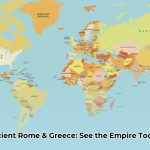What is it about Ancient Rome that continues to captivate us, generation after generation? It is arguably the epic sagas of power, the intricate political maneuverings, the vibrant cultural tapestry, and the profound philosophical inquiries that the Romans grappled with—all woven into one formidable civilization. To truly comprehend Rome, relying solely on entertaining movies and television series falls short. Essential books serve as indispensable guides, offering the depth required to explore this vast and complex world, from the foundational Roman Republic to the sprawling Roman Empire. Let us delve into a curated selection of reads that will help you unlock the enduring secrets of this remarkable ancient civilization. You can also find a list of books online.
Foundational Journeys: Comprehensive Overviews of Roman History
For a robust and engaging introduction to Roman history, Mary Beard’s SPQR: A History of Ancient Rome stands as an unparalleled choice. Beard skillfully navigates from Rome’s mythical origins to the zenith of its imperial might, injecting wit and fresh insights that render even the most intricate aspects of Roman society relatable. This volume is a compelling starting point for anyone seeking an initial exploration of classical studies and a challenge to conventional historical viewpoints.
A monumental undertaking, yet equally rewarding, is Edward Gibbon’s The History of the Decline and Fall of the Roman Empire. Published in multiple volumes, Gibbon offers an exhaustively detailed examination of the multifaceted factors that contributed to Rome’s eventual demise. He meticulously dissects the political machinations, military miscalculations, and profound cultural shifts that gradually eroded the empire’s foundations. Gibbon’s work compels readers to ponder the parallels between Rome’s historical trajectory and contemporary global dynamics, prompting a timeless reflection on the fate of once-dominant civilizations.
The Architects of Power: Emperors, Generals, and Politicians
To gain intimate perspectives on the individuals who forged and fragmented Rome, biographies are indispensable. Books focusing on figures such as Julius Caesar, Cicero, and Augustus not only illuminate their personal narratives but also reveal the profound impact of their actions on Roman governance and the course of history.
Barry Strauss’s Ten Caesars: Roman Emperors from Augustus to Constantine offers a compelling narrative of the Empire’s evolution through the lives of its most influential rulers. He expertly portrays their leadership styles, triumphs, and failures, demonstrating how each emperor profoundly shaped the imperial trajectory. For an unvarnished glimpse into the scandalous and often brutal realities of imperial power, Suetonius’s The Twelve Caesars provides primary source accounts of Rome’s earliest emperors, blending historical fact with revealing anecdotes.
The transition from Republic to Empire is a pivotal and often debated period. Tom Holland’s Rubicon: The Last Years of the Roman Republic vividly recounts the political intrigue, betrayals, and ambitions that characterized this era, bringing to life key figures like Julius Caesar, Pompey, and Cicero. Complementing this, Mike Duncan’s The Storm Before the Storm: The Beginning of the End of the Roman Republic offers a compelling argument that political corruption and widening inequality were primary catalysts for the Republic’s collapse.
Beyond the Toga: Society, Culture, and Daily Life
Roman history extends far beyond the exploits of emperors and the clash of legions. It encompasses the daily lives of its citizens, the evolving role of women, and the intricate social and economic forces that underpinned the empire. These crucial aspects are often marginalized in traditional accounts.
To gain a comprehensive understanding, explore works dedicated to these hidden dimensions. Jérôme Carcopino’s Daily Life in Ancient Rome: The People and the City at the Height of the Empire offers a fascinating journey into the bustling metropolis, dissecting social classes, customs, and the fabric of everyday existence. Guy de la Bédoyère’s Domina: The Women Who Made Imperial Rome shines a much-needed light on the often-overlooked yet incredibly influential women who wielded power behind the scenes, from formidable empresses to shrewd businesswomen, challenging the perception of a solely male-dominated world. Edith Hamilton’s The Roman Way provides an insightful cultural exploration, capturing the resilience and unique spirit of Roman society.
War, Climate, and Collapse: Understanding Rome’s Enduring Struggles
The military prowess and vulnerabilities of Rome are endlessly fascinating. Robert L. O’Connell’s The Ghosts of Cannae: Hannibal and the Darkest Hour of the Roman Republic and Adrian Goldsworthy’s Cannae: Hannibal’s Greatest Victory offer meticulous accounts of one of history’s most decisive battles, dissecting Hannibal’s genius and the Roman Republic’s near-collapse during the Second Punic War. Goldsworthy’s Pax Romana: War, Peace, and Conquest in the Roman World further explores the mechanisms by which Rome maintained its vast empire during its period of peak stability.
Beyond military and political factors, other forces contributed to Rome’s narrative. Kyle Harper’s The Fate of Rome: Climate, Disease, and the End of an Empire presents a compelling, interdisciplinary argument that environmental shifts and the spread of disease played a significant and often underestimated role in the Roman Empire’s decline, offering a fresh perspective on its multifaceted downfall.
The Mirror of Wisdom: Philosophical Gems and Enduring Legacies
For insights into the Roman mind and its enduring wisdom, philosophical texts are invaluable. Marcus Aurelius’s Meditations, written by an emperor and Stoic philosopher, offers timeless reflections on duty, virtue, and the human condition. Reading these personal reflections provides a direct conduit into classical Stoicism and the profound questions that occupied the minds of Roman leaders. Cicero’s works, whether his philosophical treatises or his powerful orations, offer a window into Roman legal, political, and moral thought, reflecting the intellectual currents of his turbulent era.
Engaging Narratives: Historical Fiction and Beyond
Sometimes, the best way to immerse oneself in ancient history is through the vivid lens of historical fiction. Robert Graves’s classic novel I, Claudius, and its sequel, bring imperial Rome to life through the eyes of the unlikely emperor Claudius, blending historical fact with engaging storytelling and illuminating the intrigue and depravity of the imperial court. Novels like these can serve as an accessible gateway, making complex historical periods relatable and deeply human.
To complement your reading, consider visual resources. The Atlas of the Roman World by Tim Cornell and John Matthews, for instance, offers invaluable geographical and contextual understanding, illustrating the vastness and organization of the Roman Empire.
Conclusion
The journey through Ancient Rome is an exploration of ambition, innovation, and the perennial challenges of governance and human nature. The books listed here provide diverse paths into this captivating civilization, from comprehensive historical accounts to intimate biographies, from social commentaries to philosophical treatises. Each offers a unique key to understanding the Roman world, ensuring that its lessons and legends continue to resonate powerfully in the modern age. Embark on this literary adventure, and you will find that the echoes of Rome’s might and wisdom are as relevant and compelling today as they were millennia ago.










